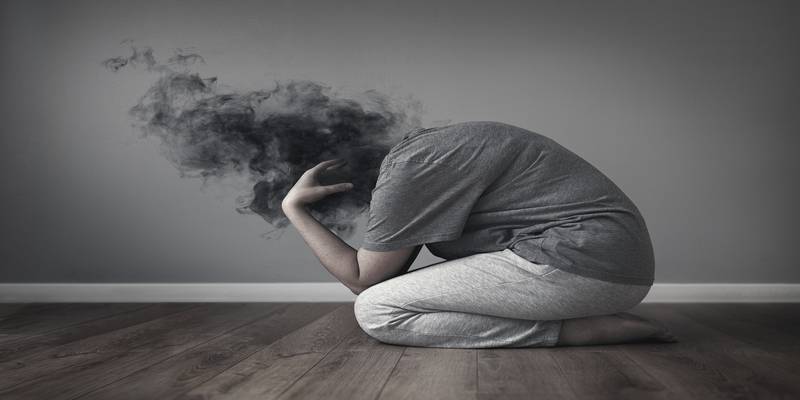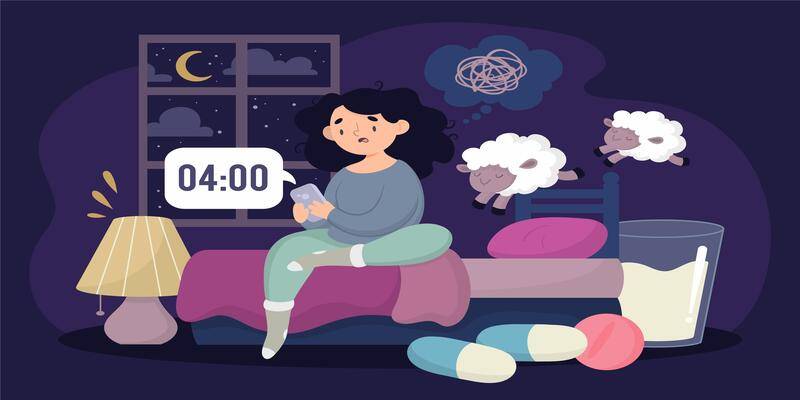Respecting depression: it’s not just “being sad”

Before we talk about depression at length, I request the readers to view this feature with a clean slate approach as your misconceptions and stereotypes around the term ‘depression’ might be shattered. Depression, a commonly used term, is often not used in the correct manner. If someone couldn’t clear a job interview, they would say they’re in depression. Another individual who got rejected by their crush, got depressed. One couldn’t go on a trip, they’re in depression. Someone who got scolded by their parents, or broke up with a partner, or scored poorly in their exams; would conveniently say, “I am depressed.” Does this sound familiar? Isn’t this how we commonly use or shall I say, misuse the term?
How am I so certain that people are misusing the term? Let me share something that happened a few months ago that gave me clarity. A couple of months ago, I lost my only sibling. Many people came for the funeral and last rites, and so did a cousin of ours. After she went back home, she was sad about her favourite sister’s demise and she kept quiet and aloof.
Seeing this, her mother called me and said, “she has gone into depression ever since the demise”. Very abruptly, I had to cut her short and impart some knowledge about the word and how it’s different from sadness. After a few days, my cousin resumed her routine life, went to work, hung out with friends, and even went out for festive celebrations. It was evident that she was sad and her mother just misunderstood her sorrowful state for depression!
Have you also experienced someone casually quoting the word “depression”? I am cent per cent sure you must have. Being a mental health coach, I come across a lot of people who use the word nonchalantly without giving two thoughts. Let us see how the two terms — sadness and depression — are different
Sadness
Sadness is a normal reaction to a loss, disappointment, problem, loneliness, or any other difficult situation. When a person is sad, they often have a specific reason for their emotional state, such as the loss of a loved one, a setback, or a challenging life event. Sadness tends to be a proportionate reaction to such circumstances and usually subsides as time passes or as the situation improves.
Sadness is generally a fleeting emotion. It does not typically interfere with a person’s ability to function in their daily life. While sadness is a legitimate and valid emotional response, it is essential to differentiate it from clinical depression to ensure that those who are struggling with a mental health issue, receive the support and understanding they need.
Depression
Depression, on the other hand, is a mental illness affecting the way one understands and relates to oneself and the things around them. It is not an emotion but a cluster of signs and symptoms that require medical assistance. It is certainly not a low mood or a lack of interest; that is sadness.
Depression is a severe and persistent mental health condition characterised by a profound and enduring sense of despair, hopelessness, and emotional numbness. It often lacks an identifiable trigger and can persist for an extended period, typically lasting for weeks, months, or even years. People with this mental illness may experience a range of debilitating symptoms, find difficulties in carrying out regular day-to-day tasks, and even have suicidal tendencies.
Before calling yourself depressed, visit a counsellor or a psychiatrist to understand whether it really is depression or not. Symptoms of depression include:
-Noticeable signs of prolonged hopelessness and sadness
-Depressed mood that lasts for most of the day, nearly every day, for weeks
-A loss of interest in normal activities for an extended amount of time
-Sleeplessness, or increased amounts of sleep that affects normal schedules
-Consistent tiredness and low energy
-Feelings of worthlessness or excessive guilt on a daily basis Inability to concentrate or make simple decisions
-Recurrent suicidal thoughts or suicide attempts or plans
The problem with casually using the term “depression”
The informal usage of the word can undermine the experiences of those who genuinely struggle with depression. It’s essential to recognise that it is not merely a synonym for feeling low but a severe mental health issue that requires understanding and empathy. When people plainly use the term “depression” to describe their fleeting feelings of sadness, it can trivialise the experiences of individuals living with clinical depression. Using the term to describe mild, short-lived sadness not only misrepresents the condition but can also discourage individuals, who genuinely need help, from seeking assistance.
When society perpetuates the idea that depression is something that everyone experiences from time to time, it creates a stigma around the illness. It makes it harder for those who are truly suffering to reach out for support. It’s important to remember that people with depression may already feel isolated and alone. And, this casual use of the term can exacerbate those feelings. Using “depression” unconcernedly can undermine the efforts of mental health advocates who work tirelessly to raise awareness and reduce the stigma associated with this mental health condition. It sends the message that depression is not a significant concern. This can deter people from supporting initiatives aimed at helping those affected by the illness.
Conclusion
Depression and sadness may be interlinked but definitely are not the same. As stated earlier, sadness is an emotion that everyone experiences, often after stressful or upsetting life events. Depression is an overpowering and ongoing mental health disorder that can drastically impact daily living. Specific triggers will often cause sadness, whereas depression may have no identifiable cause. Sadness is a part of depression but is more temporary in nature. So, please be mindful when you carelessly use the word depression for sadness. There’s a huge difference between them.
In a world that’s already not receptive towards mental ailments and where every day, people are striving to spread awareness. Informally using any mental health term, be it depression, anxiety, or OCD (obsessive-compulsive disorder) can have far-reaching effects. It makes it more difficult for those suffering as it diminishes the seriousness that mental health merits. With slight mindfulness, we can make our little contribution to making the world a better place for all those who are silently enduring the ordeal every day.






